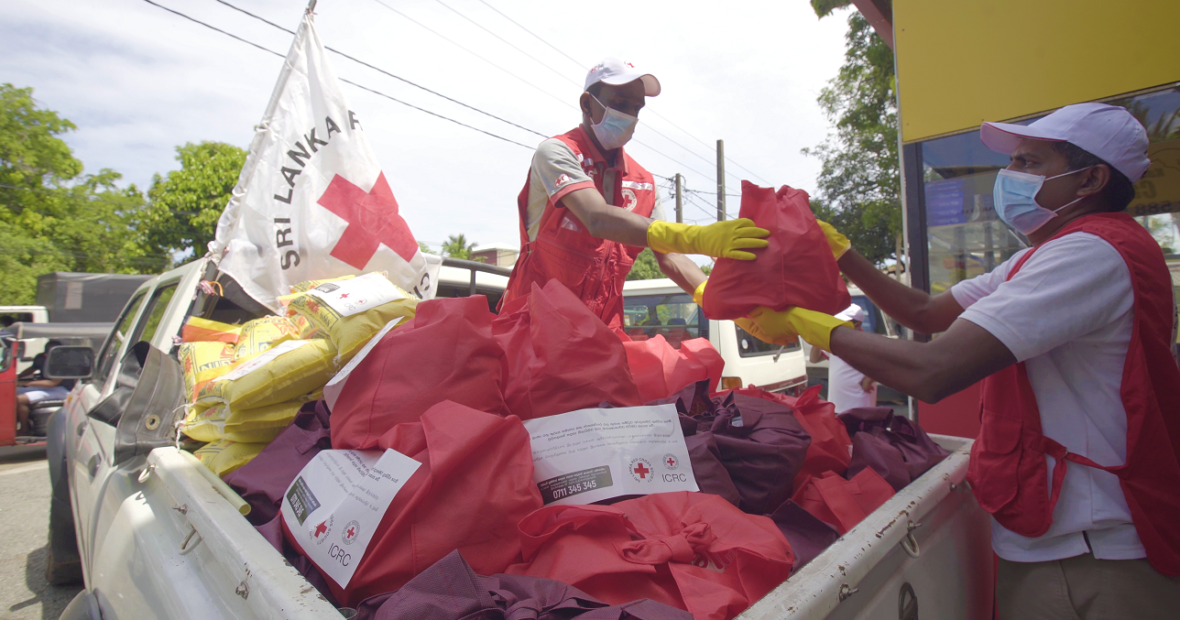During my seventeen-year humanitarian career, I have been involved in several responses to major worldwide disease outbreaks: Ebola, Lassa fever, Dengue, and now COVID-19. Having to lead a national-level response to this pandemic has proven to be an intense experience. It was necessary to strategise a timely, technically tested, and culturally appropriate response.
Nowadays, when countries are more interconnected than during the time of Spanish flu a century ago, disease outbreaks can spread much faster. However, knowledge transfer has also become easier and faster. But when a disease outbreak hits a country, region, or evolves to pandemic levels, we still seem to start from the very beginning and undergo a cycle of trial and error, ignoring our past lessons. I have witnessed this in Sri Lanka’s COVID-19 response, and elsewhere in the world.
While working for the West African Ebola crisis response, I learnt some useful lessons for the management of COVID-19, especially in relation to assisting behaviour change in the culturally, ethnically, and religiously diverse contexts of the developing world. In these areas, there is a grossly inadequate level of infrastructural support for adhering to desired behaviours, and myths, cultural practices, and local leadership remain barriers, rather than the impetus, for change.
Extremely important cultural practices like the burial rituals of washing bodies, or practices of secret societies that had remained embedded within local cultures for centuries were labelled as risk behaviours and were stopped as prevention and containment measures took priority. The “Liberian snap-handshake,” arising from the Americo-Liberians’ arrival, was the first gesture to be stopped – just like the handshake today.
While tackling such sensitive behaviours deeply rooted in the local culture, the Ebola crisis showed the importance of understanding the information ecosystem of the geographies hit by the outbreak and exploring culturally appropriate communication strategies with communities. It revealed the added value of community participation that targets all layers of society, building trust and partnerships with formal and informal leaders. This includes close coordination with all people present, working with social scientists, and integrating protection and gender into the equation in order to facilitate sustainable behavioural change.
Understanding this information ecosystem requires assessing the information landscape, needs, use and impact of knowledge, production and movement, dynamics of access, and social trust. It requires reaching out across the entire social ecology.
The more the information ecosystem is understood, the more innovative and effective behavioural support could be. Being innovative is not merely introducing “modern technology” to communities, the innovation process begins with one basic premise – listen first. That is, we need to communicate with communities directly.
Targeting the social ecology of the individual is vital so that barriers at different levels can be better addressed and agents of change can also be identified and mobilised at every layer. One of the key lessons I learned during the Ebola response was that the negative deviance and protection-motivation approaches showed results at the response phase, and then positive deviance and health benefit-based messaging were amalgamated at the recovery stage. This results in a trans-theoretical approach to behaviour change, which has shown success in the Sri Lankan context in response to COVID-19. It helped communities to adhere to the desired behaviours swiftly and then to sustain them for a longer term.
It is important to address misinformation to avoid increasing anxieties around the disease outbreak, rather than throwing information at the public. One of the unpredicted challenges I noticed in the Ebola response was the misinformation surrounding Ebola, the same way it is with COVID-19 today. Community dialogue could help community leaders understand perceptions, tackle misinformation, and adjust their approach accordingly. It can also help to reduce the stigma associated with the disease and facilitate social integration. Working with social scientists such as sociologists, anthropologists, and psychologists has proven to be an added strength – especially in understanding the diverse nuances of different religious and ethnic groups and adapting messages toward effective behaviour change.
Communities play a vital role in the support for screening, referrals of suspected cases, contact follow-up, monitoring of the outbreak, and communication initiatives. Involving active and meaningful community leadership in risk communication and understanding the disease and desired behaviour has proven to be quite successful in the Ebola and COVID-19 contexts.
For diseases like COVID-19, where communities are often not familiar with what the disease is and how to prevent and treat it, the behaviour change messaging must come from a trusted source. Therefore, it is imperative to identify the most trusted and influential information sources and communicate with communities through those sources in a culturally appropriate way. In conflict and political crises, communities can be sceptical of governmental or international non-governmental organisations and may trust only their community leaders. Therefore, developing trust in communities is paramount.
Disease outbreaks affect men, women, children, the elderly, and the especially-abled differently. Belonging to a marginalised group exacerbates the situation. As such, an individual’s information needs, accessibility of information, and the sources they can trust could be different from the general population – therefore, “leaving no one behind” is key.
Partnerships and coordination ensure that the interventions are built on trustworthy demographics and context formations, utilising validated strategies without duplication. That is, they make it possible to reach people affected by the outbreak sooner and more effectively.
Epidemics centre around human behaviour, so understanding the information ecosystem and communication with communities will help create sustainable behavioural change. Even pandemics like COVID-19 aren’t exempt from that.
This piece was first published in Australian Outlook.


